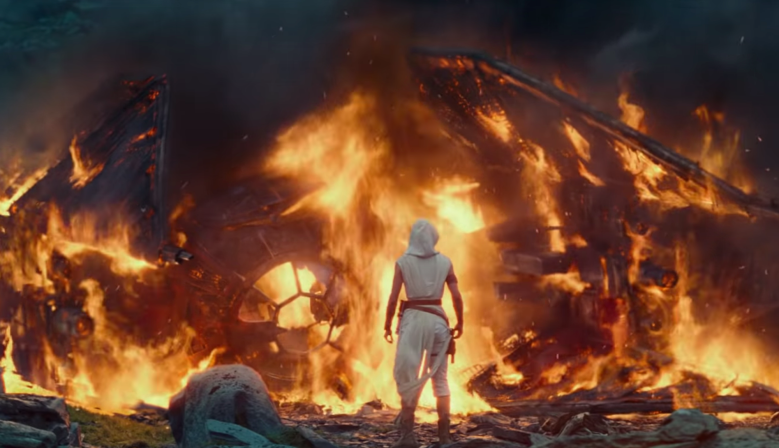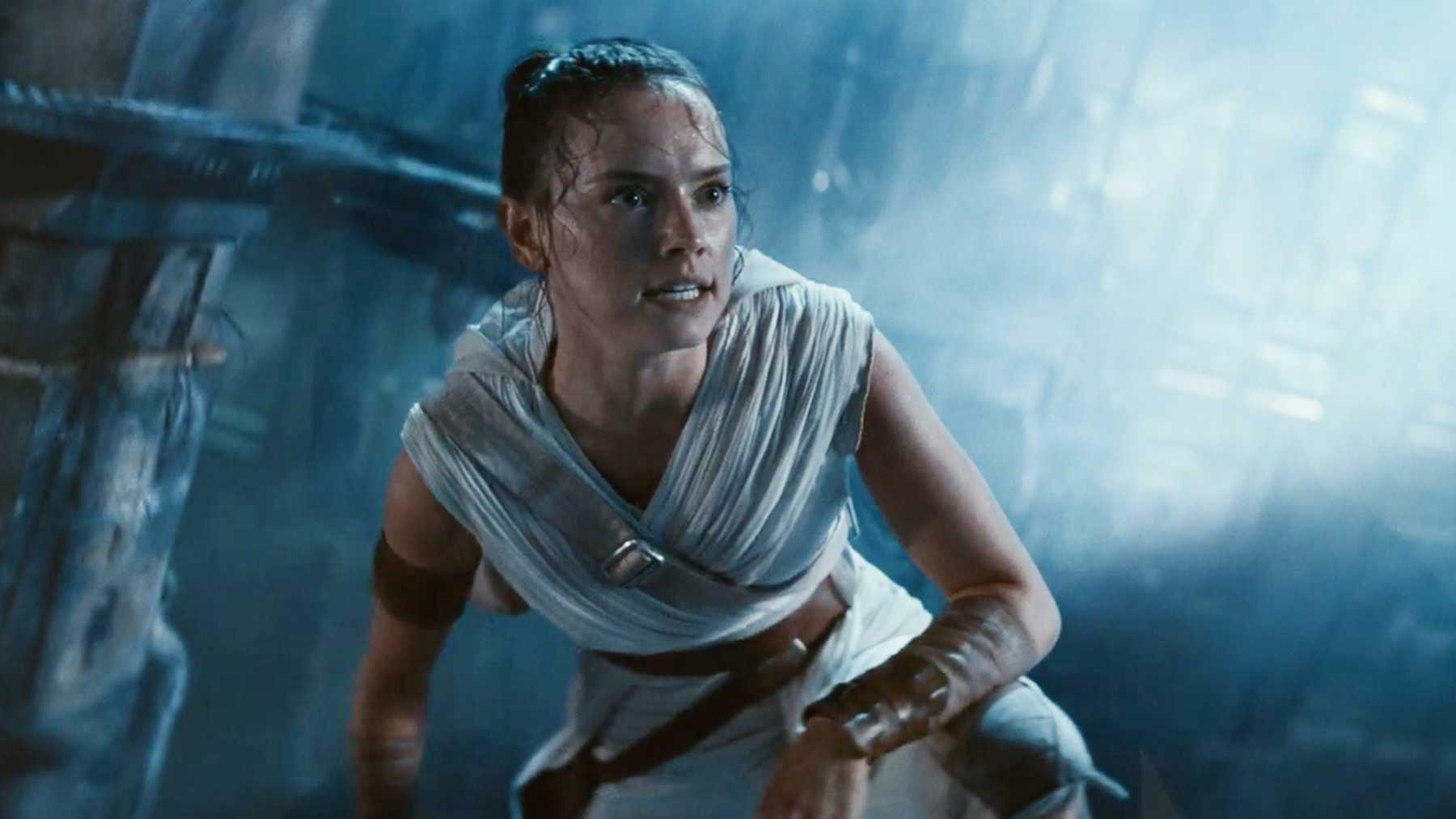This is how Star Wars ends. Not with a bang but with a long aggravating raspberry that continues to resonate in your mind long after the film has ended. If we needed further proof that J.J. Abrams should never be in control of another beloved franchise, this is it. If Star Wars needed a final nail in the coffin, The Rise of Skywalker is it. The film is the end of the Skywalker saga. It has conclusively smothered any ongoing sense of charm that George Lucas fostered during his tenure as creative governor of the franchise.
The Star Wars saga may not have aged with me. That is worth acknowledging. My little cousin Ned, one of my very favourite people, told me that he wished that the film had never ended. He also provided a muttered commentary throughout The Rise of Skywalker that was drastically more coherent, thoughtful and entertaining than the film itself. “Kylo Ren had better turn to the Light Side!” Ned warned me, or himself, at about the halfway point, his enthusiasm reminding me that these movies are largely intended for younger people.
Yet this Get Out of Jail Free Card that has been bandied about the Star Wars franchise since the release of The Phantom Menace is nonsense. That the target audience for a movie is a child does not render incompetent filmmaking and storytelling mandatory. Wall-E, Fantastic Mr. Fox, Rango, the Karate Kid remake or any Hayao Miyazaki film are but a few recent examples of films that ostensibly belong to children that may be equally enjoyed by adults.
With The Rise of Skywalker, Abrams has made a sequel to The Force Awakens, fundamentally ignoring or reversing almost every notable decision made by Rian Johnson in The Last Jedi. This demonstrates misplaced confidence in his own sensibilities and an unwise disregard for what Johnson brought to the table.
Abrams is a woeful storyteller and he always has been. He is more fascinated with hitting particular beats or using characters to do the legwork in lieu of a competent story. Perhaps the most telling indication of Abrams’ utter inadequacy with storytelling is his stubbornness with Johnson’s material. Johnson ignored a lot of what Abrams established in The Force Awakens, but this petulant retaliation is absolute regression.
The Rise of Skywalker is fan service, a distressingly prevalent element of large budget filmmaking in recent years. But the film is only servicing one type of fan. Perhaps this sort of fan is simply the most vocal, their needs trickling upwards and loudly through the internet toward Bob Iger. But fans did not make The Empire Strikes Back. There has never been a great piece of Hollywood entertainment that was dictated by an instinct to show fans what they thought they wanted to see.
There is little need to discuss the obvious; the things that you will all instantly perceive. Those are things like Carrie Fischer’s presence being painfully executed or Adam Driver being far too good for the film he is in or the way that Abrams and co-screenwriter Chris Terrio haphazardly introduce characters and plot points that have perplexingly endured beyond the point of spitballing whether they ought to have or not.
Rian Johnson advised us to let the past die. Abrams has given us no alternative. Star Wars in its current cultural space offers as much escapism and magic as a pet rock. This is pathetically careless filmmaking. Any element of the narrative with any worth is a consequence of how strong the legacy that George Lucas established, now in tatters, once was. May remorse be with them.


